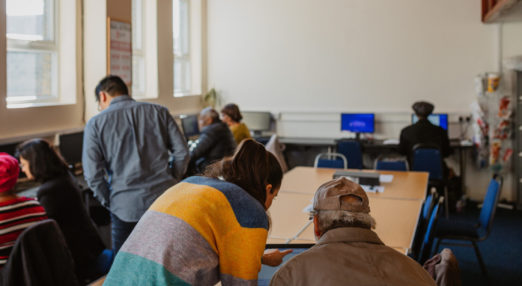Digital skills and safety
The Government’s Essential Digital Skills framework provides five categories for the skills that are essential for everyday life and work: communicating, handling information and content, problem-solving, transacting, and – finally – being safe online.
There are currently 10.2 million people that lack the digital foundations for life (Lloyds, 2022). This means that one in five people struggle to communicate, search for health information, or access government services online.
Online safety is central to what being ‘digitally included’ means. It is especially important for people who are new or limited users of the internet (often older people, and working-age adults with low educational attainment and low incomes) and those in vulnerable situations. Around 6 in 10 adults report having had a least one potentially harmful experience online in the past year (Ofcom/ICO 2020).
Covid-19 has revealed the value of digital technology in our lives – enabling many of us to learn, earn, stay safe, informed, and connected. It has also raised major concerns about digital exclusion, as too many have been locked out of these benefits. The pandemic has spurred innovation and acceleration in digital services and the use of data, not least in supporting the public health and healthcare response. There have also been reports of a rise in online abuse, online scams, online consumer harms relating to mental health, and the spread of misinformation and disinformation during the pandemic.
How are we affecting change?
Find out more about how we are supporting communities and our network.



